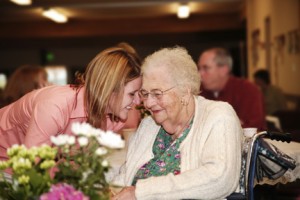 Families can usually agree on the importance of creating a New York estate plan. However, as crucial as having a comprehensive estate plan is, recent studies show that only a small percentage of couples – most of them older – have current estate planning documents in place. When those who do not have an estate plan are asked why that is the case, the most common response is that they are avoiding having a difficult conversation with their loved ones. For parents, this concern is primarily centered around not wanting to cause problems between siblings.
Families can usually agree on the importance of creating a New York estate plan. However, as crucial as having a comprehensive estate plan is, recent studies show that only a small percentage of couples – most of them older – have current estate planning documents in place. When those who do not have an estate plan are asked why that is the case, the most common response is that they are avoiding having a difficult conversation with their loved ones. For parents, this concern is primarily centered around not wanting to cause problems between siblings.
The first step toward drama-free estate planning is understanding what causes drama between siblings in the first place. Of course, parents cannot necessarily resolve existing sibling rivalries or long-standing disagreements between siblings, which can make the process more challenging. In addition, the estate planning process itself can cause other types of issues to arise. For example, siblings who may not communicate that often may be skeptical of the others’ motives; they may disagree on who should pay for final arrangements, or how assets should be divided. Parents can take specific steps to make the estate planning process easier and reduce the chance of starting arguments between their children.
Create a Financial Overview
 While a comprehensive estate plan provides a detailed explanation of where a couple wants their assets to end up after they pass on, it does little to explain to children what those assets are and where they are located. A financial overview solves this problem by providing a list of all family assets and their location. For example, parents may have bank or investment accounts that at least one child is unaware of. If a child believes assets are only made known to certain siblings, it can start to build resentment, which may grow over time. By sharing a financial overview with all children, parents can reduce the perception of favoritism.
While a comprehensive estate plan provides a detailed explanation of where a couple wants their assets to end up after they pass on, it does little to explain to children what those assets are and where they are located. A financial overview solves this problem by providing a list of all family assets and their location. For example, parents may have bank or investment accounts that at least one child is unaware of. If a child believes assets are only made known to certain siblings, it can start to build resentment, which may grow over time. By sharing a financial overview with all children, parents can reduce the perception of favoritism.
A proper financial overview should include the following information:
- A list of all assets, liabilities and insurance policies, as well as how they are titled and any named beneficiaries.
- Contact information for all financial, legal and insurance professionals.
- Usernames and passwords for all financial and insurance websites.
- A legacy letter outlining the non-financial assets, such as family heirlooms, that parents want to pass on to their children.
By creating a financial overview, parents can not only make the estate administration process easier for the executor but can also reduce the chances of starting family conflict. However, ongoing and open communication will also be essential.
Schedule a Family Meeting
After parents create an estate plan and a financial overview, the next step is to schedule a family meeting. Both parents, as well as all children who will be inheriting assets, should attend the meeting. While ideally, family members would meet in person, if children live across the country or a family is concerned about maintaining social distance, a family meeting could be held virtually.
Topics to cover at the family meeting include:
- Discussing the basics of the estate plan;
- Ensuring at least one person knows the location of the estate planning documents;
- Explaining who will be the executor of the estate, as well as any other necessary parties, such as trustees;
- Discussing the importance of transparency and openness during the estate administration process;
- Outlining the parents’ plan for important non-financial items, such as family heirlooms; and
- Discussing the importance of keeping things fair and using the process to bring the family together.
For many parents, the process of discussing their estate plans with their children is a topic to be avoided. However, these are crucial conversations that must take place to increase the likelihood of a smooth and drama-free estate administration process.
Speak With a New York Estate Planning Lawyer for Immediate Assistance
Creating an estate plan to address your family’s unique needs is crucial to securing your legacy and ensuring that future generations are cared for. At the New York estate planning law firm, Littman Krooks, LLP, we have over 30 years of experience helping families effectively plan for their financial future. We pride ourselves in providing an exceptional level of service to individuals of varying net worth, helping our clients ensure that future generations are well taken care of and reducing the tax burdens on their estates. To learn more about how our dedicated team of attorneys can assist your family with its unique needs, call 914-684-1200 to schedule a no-obligation consultation today.




 Staying organized and informed is really important when you are not there in person. This cuts down on unnecessary stress and confusion and makes talking to multiple medical professionals or other caregivers easier. Keep a list of all of your loved one’s medical conditions, medications, doctors, appointments and anything else that is relevant to their care. Be sure to update this list often and to research anything with which you are unfamiliar. Take detailed notes during appointments and phone calls with other care providers.
Staying organized and informed is really important when you are not there in person. This cuts down on unnecessary stress and confusion and makes talking to multiple medical professionals or other caregivers easier. Keep a list of all of your loved one’s medical conditions, medications, doctors, appointments and anything else that is relevant to their care. Be sure to update this list often and to research anything with which you are unfamiliar. Take detailed notes during appointments and phone calls with other care providers.
 The Department of Aging’s
The Department of Aging’s  Advance directives, such as a Health Care Proxy and Power of Attorney will benefit any adult, as accidents and emergencies cannot be predicted, and do not discriminate by age. By having a Health Care Proxy in place, a person can dictate who will make decisions on their behalf in the event they can no longer make them on their own. In addition, a thoughtfully drafted living will can assist the appointed agent in making the choices that a person would want made, including what kind of end-of-life care they would want to be given or withheld. Another document that becomes tremendously important in the event of incapacity is a durable power of attorney, which allows the appointed agent to manage the principal’s finances.
Advance directives, such as a Health Care Proxy and Power of Attorney will benefit any adult, as accidents and emergencies cannot be predicted, and do not discriminate by age. By having a Health Care Proxy in place, a person can dictate who will make decisions on their behalf in the event they can no longer make them on their own. In addition, a thoughtfully drafted living will can assist the appointed agent in making the choices that a person would want made, including what kind of end-of-life care they would want to be given or withheld. Another document that becomes tremendously important in the event of incapacity is a durable power of attorney, which allows the appointed agent to manage the principal’s finances.
 The Centers for Medicare and Medicaid Services (CMS), part of the Health and Human Services Department, issued a rule preventing nursing homes from requiring that residents resolve disputes in arbitration rather than through a lawsuit. The rule applies to all facilities that receive federal funding, protecting the rights of 1.5 million residents. The arbitration ban is one of several new nursing home regulations promulgated by CMS, including new standards for nutrition and infection control.
The Centers for Medicare and Medicaid Services (CMS), part of the Health and Human Services Department, issued a rule preventing nursing homes from requiring that residents resolve disputes in arbitration rather than through a lawsuit. The rule applies to all facilities that receive federal funding, protecting the rights of 1.5 million residents. The arbitration ban is one of several new nursing home regulations promulgated by CMS, including new standards for nutrition and infection control.
 If you have countable resources above the limits, you may be told that you need to “spend down” your assets, paying for nursing home care yourself, until you reach the resource limits, at which point Medicaid begins covering the cost. This is what happens in many cases. In other cases, a family may anticipate the need for long-term care and wish to transfer assets to the next generation ahead of time, in order to preserve the family’s resources while still qualifying for Medicaid. This is an excellent strategy, as long as the Medicaid rules are followed.
If you have countable resources above the limits, you may be told that you need to “spend down” your assets, paying for nursing home care yourself, until you reach the resource limits, at which point Medicaid begins covering the cost. This is what happens in many cases. In other cases, a family may anticipate the need for long-term care and wish to transfer assets to the next generation ahead of time, in order to preserve the family’s resources while still qualifying for Medicaid. This is an excellent strategy, as long as the Medicaid rules are followed.